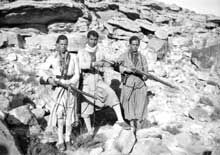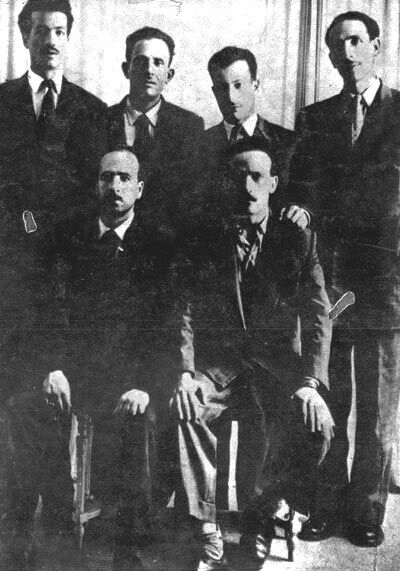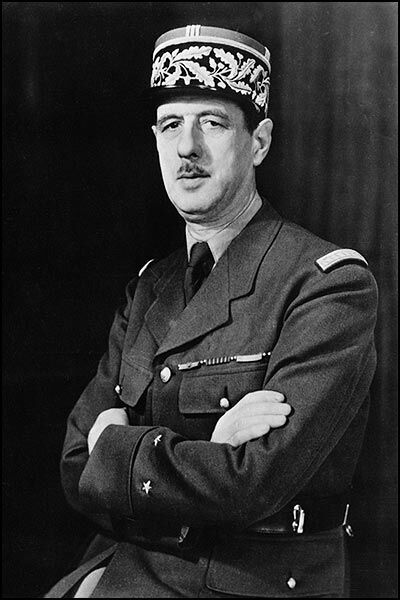Vietnam became independent in 1954, an event which encouraged Algerian independence movements. Negotiations between France, Morocco and Tunisia were going well at this time.
The Algerian population was divided between 8 million Muslims, who were considered natives, and 1 million European citizens nicknamed the Pieds Noirs. There were major differences in living standards between these two groups, with the Muslim population forced into a life of poverty.
France had no plans for Algerian independence. In fact, the loss of Algeria would mean that France would no longer be the great world power it had been since the 19th century.
In 1954, Algeria was the only French settlement colony with more than one million Europeans. France also benefited from highly profitable commercial farming, along with oil and gas trade with Algeria.
However, Algerians’ confidence in the French government was undermined by broken promises leading to a growing sense of nationalism from 1946 on.
In 1954, the National Liberation Front (NLF) was created in Algeria. This Party also formed an army: the National Liberation Army (NLA). In the same year, these groups carried out an insurrection against the French authorities on All Saints’ Day.

NLA Soldiers
Several pro-independence attacks took place throughout Algeria simultaneously on November 1, also referred to as All Saints’ Day (Toussaint). Nearly 30 attacks, fires and bombings resulted in 7 deaths. This was the beginning of the Algerian War, which lasted 8 years.
Algeria received international support right from the start of the war. Morocco, Tunisia and other non-Arab countries in the region supported the Algerians. France attempted to disrupt this solidarity, but was reprimanded numerous times by the Russians and the Americans. Its stubborn attitude resulted in France being summoned twice before the UN, in order to justify its actions.
At the time, the French army had 450 000 soldiers led by seasoned officers popular with the Pieds Noirs. The NLF had 25 000 Algerian combatants and had to deal with a lot of infighting. The NLF conducted many bombings, attacks, acts of sabotage and riots. The French responded to each of these events by quashing them with a very strong hand.

NLF Leaders
By 1956, there were armed conflicts throughout Algeria, including its major cities. A provisional government of the Algerian Republic was created in 1958. France slowly gained control of the cities, followed by rural areas. France won the war, but could never re-establish public order and lost the international community’s support.
The initial defeat of the NLF would cause the collapse of the regime and worsen instability in Algeria. Students from Algiers besieged the headquarters of the general government in 1958, and threatened a coup d’État. This was when Charles de Gaulle returned to power. He immediately issued a new constitution, and assumed special powers enabling him to resolve the conflicts in Algeria. New attacks undermined the immediate effectiveness of these measures and in Paris, many Algerians took to the streets to express their dissatisfaction.
The French people wanted the war to end, even at the cost of Algeria’s independence. The war brought considerable economic and social costs. Intellectuals also began to support the idea of Algerian freedom and independence. Written by French intellectuals, the Manifesto of the 121 supported disobedience in the face of French repression, while several other intellectuals, including Albert Camus, proposed bringing the communities closer together.
In 1959, Charles de Gaulle proposed three options to the Algerians: secession, francization or partnership. However, before any of these options could become reality, the war had to be ended, which was difficult to do.

Charles de Gaulle
Officers of the Pieds Noirs carried out the Algiers putsch on April 22, 1961, to stop independence. They carried out massacres and destruction, stalling peace negotiations. An atmosphere of hate and fear was prevalent throughout Algeria. The Evian Accords were finally signed on March 18, 1962, which granted Algeria its sovereignty. A system of financial, cultural and technical cooperation was established between France and Algeria. These ties are still close today, strengthened by numerous trade agreements. With a constitutional reform in 1989, Algeria has been allowed to have several political parties.
This war of independence killed many on both sides although it is difficult to determine a precise number. The number of deaths among Algerian civilians is estimated to be between 300 000 and 400 000, while among Europeans, 27 500 soldiers were killed and 1000 went missing. 2800 European civilians were killed and 800 went missing.